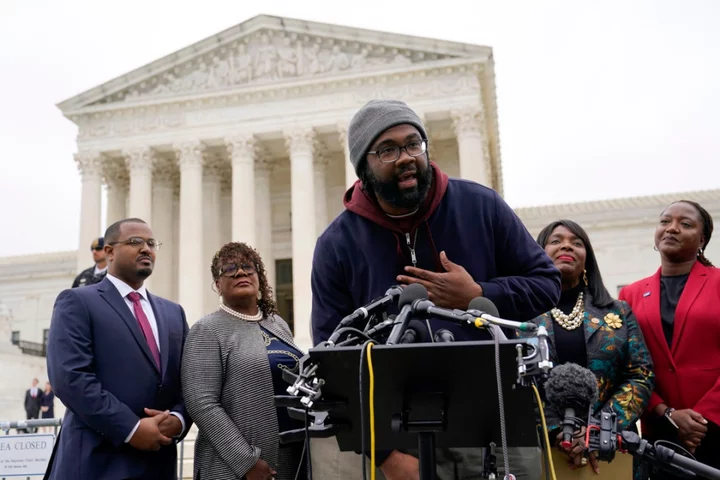In a victory for voting rights and Alabama voters, the US Supreme Court has ruled that the state likely violated the Voting Rights Act with a congressional redistricting plan that diluted the voting power of Black voters.
The state likely discriminated against Black voters with a Republican-drawn map that packs most of the state’s Black residents into a single district, out of seven, despite Black residents making up 27 per cent of the state’s population.
A key ruling in the case of Allen v Milligan on 8 June means that the state will have to re-draw its congressional map to include a second majority-Black district.
The surprise 5-4 decision on the conservative-majority panel was written by Chief Justice John Roberts, joined by liberal Justices Elena Kagan, Ketanji Brown Jackson and Sonia Sotomayor, with partial but crucial concurrence from conservative Brett Kavanaugh.
Consertive justices Samuel Alito, Amy Coney Barrett, Neil Gorsuch and Clarence Thomas dissented.
Last year, a lower court ordered the state to draw new political boundaries that would create at least two districts in which Black voters would be more likely to elect a representative to Congress that more closely resembles the state’s demographics.
The Voting Rights Act was drafted to prevent that kind of race-based dilution of Black voters. But attorneys for the state argued the opposite – that considering race to redraw political boundaries would mark an unconstitutional consideration of “racial targets” and “race-based sorting”, in violation of the 14th Amendment’s equal protection clause.
The justices rejected that argument.
A decision that sided with Alabama attorneys would have radically reduced Black voters’ political power and landed a critical blow to a state with a long history of racist violence and discrimination.
Section 2 of the Voting Rights Act prohibits voting laws and election policies from discriminating on the basis of race. The state’s suggestion that “race should play no role whatsoever” to determine whether redistricting plans violate Section 2 would “rewrite” the law and “overturn decades of settled precedent,” according to the map’s challengers.
Attorneys for President Joe Biden’s administration argued that Section 2 of the Voting Rights Act should be considered when “pervasive racial politics would otherwise deny minority voters equal electoral opportunities.”
The map’s challengers argued that is precisely what is at stake in Alabama.
The case stems from a lawsuit filed on behalf of Greater Birmingham Ministries, Alabama State Conference of the NAACP, and a group of voters represented by the American Civil Liberties Union and NAACP Legal Defense and Educational Fund, among others.
A group of Black voters filed a similar lawsuit in 2018 and lost.
The state’s sole majority-Black district – currently represented by Democratic US Rep Terri Sewell – has a voting population that is 60 per cent Black, roughly one-third of the state’s Black population.
The state’s remaining Black population is “cracked” across the First, Second and Third congressional districts – all represented by white Republicans.
“This decision is a crucial win against the continued onslaught of attacks on voting rights,” according to a statement from NAACP Legal Defense and Educational senior counsel Deuel Ross, who argued the case before the court last October.
“Alabama attempted to rewrite federal law by saying race had no place in redistricting. But because of the state’s sordid and well-documented history of racial discrimination, race must be used to remedy that past and ensure communities of color are not boxed out of the electoral process,” he added.
This is a developing story
Read MoreSupreme Court to review South Carolina congressional map for discrimination against Black voters
Supreme Court rules in favor of Black voters in Alabama redistricting case
Main suspect in 2005 disappearance of Natalee Holloway due to be extradited to US
Alabama senator says Space Command prefers Huntsville for HQ, but command has no comment









